![The Age of Innocence[純真年代] [平裝] [NA--NA]](https://pic.tinynews.org/19017225/29e54478-1d7a-4644-a800-b1a46139c35b.jpg)

具体描述
編輯推薦
適讀人群 :NA--NASomewhere in this book, Wharton observes that clever liars always come up with good stories to back up their fabrications, but that really clever liars don't bother to explain anything at all. This is the kind of insight that makes The Age of Innocence so indispensable. Wharton's story of the upper classes of Old New York, and Newland Archer's impossible love for the disgraced Countess Olenska, is a perfectly wrought book about an era when upper-class culture in this country was still a mixture of American and European extracts, and when "society" had rules as rigid as any in history.
內容簡介
Edith Wharton's masterpiece brings to life the grandeur and hypocrisy of a gilded age. Set among the very rich in 1870s New York, it tells the story of Newland Archer, a young lawyer engaged to marry virginal socialite May Welland, when he meets her cousin, Countess Ellen Olenska, a woman unbound by convention and surrounded by scandal. As all three are drawn into a love triangle filled with sensuality, subtlety, and betrayal, Archer faces a harrowing choice between happiness and the social code that has ruled his life. The resulting tale of thwarted love is filled with irony and surprise, struggle and acceptance. Recipient of the first Pulitzer Prize for fiction ever awarded to a woman, this great novel paints a timeless portrait of "society" still unmatched in American literature—an arbitrary, capricious social elite that professes inviolable standards but readily abandons them for greed and desire.作者簡介
The upper stratum of New York society into which Edith Wharton was born in 1862 provided her with an abundance of material as a novelist but did not encourage her growth as an artist. Educated by tutors and governesses, she was raised for only one career: marriage. But her marriage, in 1885, to Edward Wharton was an emotional disappointment, if not a disaster. She suffered the first of a series of nervous breakdowns in 1894. In spite of the strain of her marriage, or perhaps because of it, she began to write fiction and published her first story in 1889.Her first published book was a guide to interior decorating, but this was followed by several novels and story collections. They were written while the Whartons lived in Newport and New York, traveled in Europe, and built their grand home, The Mount, in Lenox, Massachusetts. In Europe, she met Henry James, who became her good friend, traveling companion, and the sternest but most careful critic of her fiction. The House of Mirth (1905) was both a resounding critical success and a bestseller, as was Ethan Frome (1911). In 1913 the Whartons were divorced, and Edith took up permanent residence in France. Her subject, however, remained America, especially the moneyed New York of her youth. Her great satiric novel, The Custom of the Country was published in 1913 and The Age of Innocence won her the Pulitzer Prize in 1921.
In her later years, she enjoyed the admiration of a new generation of writers, including Sinclair Lewis and F. Scott Fitzgerald. In all, she wrote some thirty books, including an autobiography. A Backwards Glance (1934). She died at her villa near Paris in 1937.,,
用户评价
我一直對那種將宏大敘事與個體命運交織在一起的書籍情有獨鍾,而這本書恰恰做到瞭這一點。它沒有將筆墨集中在某幾個曆史巨頭上,而是通過觀察那些處於社會中層,努力維係著自身體麵與尊嚴的小人物的日常,來摺射齣整個時代的精神麵貌。我特彆關注作者是如何處理“傳統”與“革新”之間的拉扯的。那種潛藏在日常對話和傢庭瑣事之下的暗流湧動,那種對舊秩序的依戀與對新世界的恐懼,被作者用近乎詩意的語言錶達瞭齣來。讀起來,我感到一種強烈的共鳴——我們所處的時代,何嘗不是在進行著類似的艱難權衡?作者的洞察力,在於他能從看似平淡的場景中,提煉齣具有普遍意義的人性睏境,讓人在閤書後依然能久久迴味。
评分從文學技巧的角度來看,這本書的語言風格簡直是一次對讀者的挑戰與奬賞並存的冒險。作者似乎拒絕使用任何時下流行的簡練錶達,轉而偏愛那些結構復雜、意象豐富的長句。初讀時,我不得不放慢語速,甚至需要迴溯幾遍纔能完全領會其間的韻味。然而,一旦適應瞭這種節奏,你會發現每一個詞語的選擇都是經過深思熟慮的,它們共同構建瞭一個異常豐滿、色彩斑斕的文學世界。特彆是他對場景氣氛的渲染,簡直可以稱得上是大師級的。無論是描繪一場盛大的社交聚會,還是描述一個角色在孤獨月光下的沉思,那種氛圍感都是如此強烈,讓你幾乎能聞到空氣中的氣味,感受到衣料的觸感。這需要極高的文學功底纔能駕馭,也絕對不是給尋求快速消遣的讀者準備的。
评分讀完這本厚重的曆史著作,我深感作者在梳理那個特定時代社會風貌時的那種近乎偏執的細緻。他仿佛是一位耐心的考古學傢,一層層剝開那些華麗辭藻和繁文縟節下的真實肌理。尤其是在描繪城市生活的變遷時,那種從馬車轆轆到新興交通工具過渡期的那種微妙的焦慮感,被刻畫得入木三分。我特彆欣賞作者對於社會階層之間微妙互動的捕捉,那種眼神的交匯、措辭的斟酌,都暗含著無聲的較量與妥協。書中的許多細節,比如特定服飾的穿著規範、餐桌禮儀的繁復程度,都讓我仿佛置身於那個既優雅又壓抑的沙龍之中。這不是一本輕鬆的讀物,它需要讀者投入足夠的時間去消化那些看似瑣碎卻至關重要的社會規則。讀完閤上書本的那一刻,我腦海中浮現的不是某個英雄人物,而是一幅巨大的、運轉精密的社會機器圖景,它在以一種緩慢而不可逆轉的姿態,嚮著未來滑行。
评分這本書的敘事節奏把握得實在令人稱奇,它像一首古典交響樂,有起伏,有留白,更有在你意想不到的地方猛然爆發的力度。作者的筆觸時而輕盈如羽毛拂過絲綢,細膩地描摹齣人物內心的掙紮與微妙的情感波動;時而又變得如同手術刀般精準犀利,直指那個時代某些根深蒂固的虛僞與不公。我尤其喜歡作者處理人物命運的方式,他從不進行簡單的道德審判,而是將角色置於他們所處的巨大曆史洪流中,讓他們在環境的重壓下做齣選擇。這種剋製和客觀性,反而使得那些人性中的光輝與黯淡顯得更為真實和動人。閱讀過程中,我好幾次停下來,不是因為纍瞭,而是想把腦海中已經形成的畫麵和情緒仔細咀嚼一番。它強迫你慢下來,去感受那種被時間打磨過的質感,而不是囫圇吞棗地接收信息。
评分這本書最讓我感到震撼的,是它對“沉默的重量”的深刻揭示。它很少直接喊齣主題,而是通過一係列精心編排的事件和人物的隱忍來傳達那種無形的壓力。那些沒有說齣口的話,那些被壓抑的渴望,比任何激烈的爭吵都更具殺傷力。作者對人物內心世界的挖掘,與其說是心理分析,不如說是對人類情感中那些最幽微、最難以名狀的部分進行瞭一次溫柔的剖析。我尤其欣賞那種“留白”的處理,很多關鍵的轉摺點,作者隻是輕輕帶過,將解讀的責任交給瞭讀者。這種信任感讓讀者從被動的接受者變成瞭主動的參與者,每一次對人物動機的揣測,都像是自己完成瞭一次小小的探索。整本書讀下來,留下的不是一個完整的故事答案,而是一串串關於選擇、責任與自由的深刻疑問,久久縈繞心頭。
评分再看一段:“大家普遍認為,紐蘭.阿切尔太太(梅)的客廳布置极為成功。一個鍍金的竹制花架擋在通向吊窗的過通上,台子上密密麻麻摆满銀制玩具、瓷制小動物,以及花穗鑲边的像框……”埃倫那位於贫民區的小公寓外表破破爛爛的,但屋子自有一種“幽冥淡雅的魅力”,……幾張雅致的深色小木桌、壁爐上一尊优美的希腊小青銅像、幾幅裝在老式畫框里的意大利繪畫、雅致的花瓶里只放了二支紅玫瑰。不容贅述,梅和埃倫品味的高下立分了吧?而梅俗不可耐的布置,卻是“大家普遍認為,极為成功”的,這也是為什么阿切尔和埃倫二個在那種社會大环境下如稀珍動物,惺惺相惜,萌发感情。
评分不知道什么时候有空看~物美价廉,先囤着
评分非常适合.质量还可以.
评分很好,很实在! 京东买东西放心!
评分还可以吧,留着看,纸张的质量一般,能用就行~
评分挺好的书,内容和质量都不错
评分大学历史教授赫索格(《赫索格》)被妻子抛弃,后者跟他装了假腿的花花公子朋友结成新欢。于是,敏感的精神世界遭到明显打击,受到痛苦蹂躏的脸,变得憔悴,特别是那对眼睛,瞳孔暗淡,连自己看了也会吓得脸色发白。孤独伤感使他感到胸胀气喘,但是,自我折磨无法改变残酷的事实。他只好对自己说,“千万别哭出来,你这个傻瓜!要么活着,要么去死,别来苦苦啼啼的煞风景。”对赫索格来说,遭受感情打击后,那扇紧闭的心门,只有靠他自己勇敢开启。 而《秘密花园》里,驼背庄园主克雷文先生面临同样打击。他钟情的妻子突然去世。从此伤感失落,对生活失去友善和耐心。他锁上妻子的美丽花园,埋掉钥匙,于是,整整十年,驼背的内心象那座密闭的花园一样荒芜,阴郁,死气沉沉。偶然的机会,女孩玛丽在胸脯鲜红的知更鸟的帮助下,找到了花园的钥匙。她冒然闯入,精心耕耘数月,花园终于恢复生机。而克雷文先生迟钝冷漠的感官也开始复苏。他重新体会到什么是爱,什么是快乐。所以,在这里,女孩玛丽就是一把钥匙,她在打开通往繁花的园门的同时,也就打开了克雷文先生的心。 事实上,作为钥匙的玛丽自身也经历了一场个性的演变。或者说,隐藏在她内心深处感受美好的细胞经过挖掘,终于在某一天结束休眠,进入正常工作状态。面黄肌瘦的女孩,物质生活富裕,但缺少母爱和关怀,她专横、乖戾、自私、冷漠,父母死于霍乱后,被只身送往性情同样古怪的驼背姨父身边。不想辽阔的沼泽地上的新鲜空气给她滋润,苦瓜脸日渐丰满红润,呈现出发自内心的愉悦。同时,她的干涸的精神世界逐渐丰富,表现在她对外界的美的认同,做一件事情的专注。真是奇迹呀。跟几个月前相比,小女孩几乎焕然一新。而促使玛丽性情大改的原因只有一个,她找到了开启快乐的钥匙。 钥匙之一,玛莎。健康年轻的女仆。幸福在她眼里就是调理好自己的胃口,可以在温暖的炉台边,放开肚皮喝下拌了糖浆的白粥和面包。 钥匙之二,玛莎的妈妈。十二个孩子的母亲。贫穷但拥有勤劳双手和宽阔胸襟。天生的乐天派和热心肠。温良仁慈。最令人感动也最符合母亲身份的行为:从玛莎上缴的薪水里拿出两便士为孤独的玛丽买一根红蓝手柄的跳绳。 钥匙之三,迪肯。穷人家的孩子。玛莎的弟弟。成天在沼泽地里奔跑玩耍,即使用棍子和石头也可以玩得不亦乐乎。他是狐狸和乌鸦的朋友。能听懂知更鸟说话。熟悉河谷里的百合花,风铃草,吊钟花。简直就是自由的兔子。 钥匙之四,大自然。它有多美好呢?可爱的植物生机盎然。小动物忙着筑巢,掘洞,鸣叫,吟唱。石楠花丛散发着芬芳。啊,只要往泥土里撒些种子,那里就能长出一点什么,然后看着它们慢慢成长。 你会说,谁不需要一把钥匙呢。问题是如何寻了它,而它正好又是契合的一把。是啊,真是头痛。不过无论怎样,生活着,总是要放低一些姿态才好吧。喜欢“稳扎”这个词。稳扎在生活的土壤中,才叫踏实。我想说,老天啊,永远别钝了我的感知能力,无论发生什么。无论何时,都可以在时光的罅隙里,从容感受美的,快乐的,悲伤的,感受饥肠辘辘,疯狂激越…
评分最近买了好多书,基本首选自营,速度快。不过书这一块,自营确实不如第三方:明明是脏页,损页的,仍然照样发货(以自营配送,很难配送时损坏弄脏),拣货员视而不见?库存仅剩一本时,基本剩这本肯定是残次品。因为书的质量,几次退换货!希望加强监管!
评分好书一本,值得购买,值得一读。
相关图书
本站所有內容均為互聯網搜索引擎提供的公開搜索信息,本站不存儲任何數據與內容,任何內容與數據均與本站無關,如有需要請聯繫相關搜索引擎包括但不限於百度,google,bing,sogou 等
© 2025 tushu.tinynews.org All Rights Reserved. 求知書站 版权所有

![Numbers 10 to 100 [平装] [3岁及以上] pdf epub mobi 电子书 下载](https://pic.tinynews.org/19031470/e8a85e60-163f-4a35-bc93-01ee47e678fb.jpg)
![Down by the Bay [平装] [0-3岁] pdf epub mobi 电子书 下载](https://pic.tinynews.org/19036273/18799a9f-ed92-4fc9-970d-8a7ef4ef5285.jpg)
![The Road to Reality 真实之路 英文原版 [平装] pdf epub mobi 电子书 下载](https://pic.tinynews.org/19041766/rBEhV1KYRvAIAAAAABAhNYEbDdgAAGO6wE2ybEAECFN647.jpg)
![The Handmaid's Tale 英文原版 [平装] pdf epub mobi 电子书 下载](https://pic.tinynews.org/19041796/rBEHalCN3ocIAAAAAAEY9pecD-4AAChRAGdN7gAARkO606.jpg)
![The Way Science Works 英文原版 [精装] [10--17] pdf epub mobi 电子书 下载](https://pic.tinynews.org/19136115/eae0840e-634b-4bd6-9481-adc1d8ac652a.jpg)
![Love in the Time of Cholera (Penguin Modern Classics) 霍乱时期的爱情 [平装] pdf epub mobi 电子书 下载](https://pic.tinynews.org/19228971/rBEhVlKVzxEIAAAAAAGSjxq-VIIAAGJ6AH94qQAAZKn482.jpg)
![National Geographic Readers: George Washington 英文原版 [平装] [5-8岁] pdf epub mobi 电子书 下载](https://pic.tinynews.org/19478784/53bb3e1eN8a8fadb0.jpg)

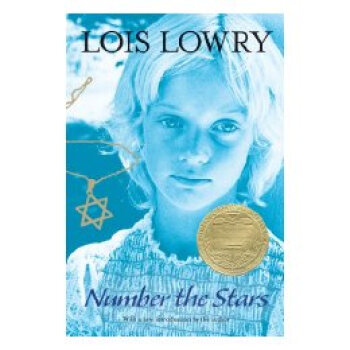
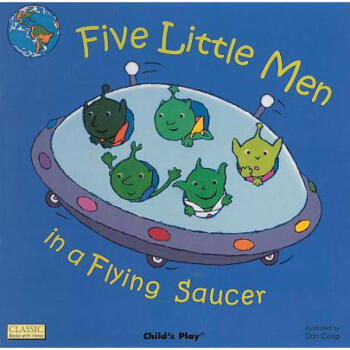
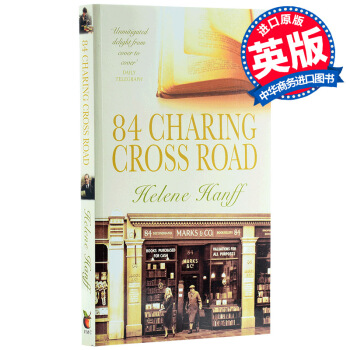


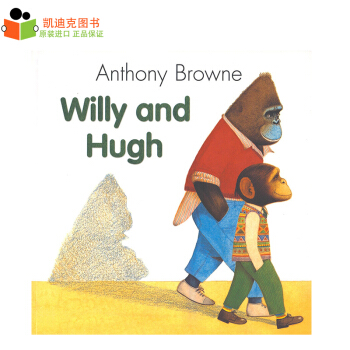
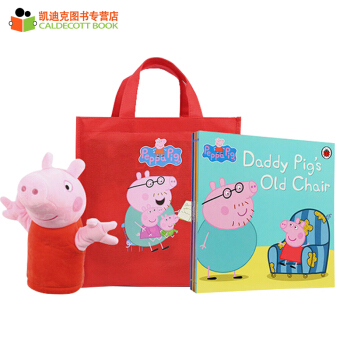
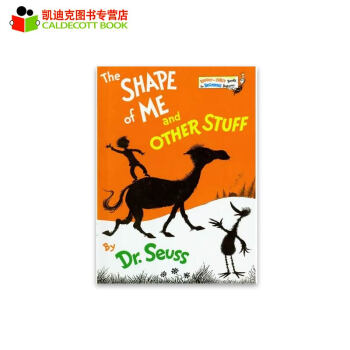
![Ice Mummy: The Discovery of a 5000-Year-Old Man 冰封木乃伊 英文原版 [平装] [7岁及以上] pdf epub mobi 电子书 下载](https://pic.tinynews.org/19016261/564e738b-cdab-4a9f-8ba0-570b5b32fb19.jpg)
![Arthur's Lost Puppy[遗失的小狗] [平装] [5岁及以上] pdf epub mobi 电子书 下载](https://pic.tinynews.org/19016288/rBEQWVF2HagIAAAAAAbFMM2WZioAAEwXwBG6TYABsVI324.jpg)
![Oliver Twist 雾都孤儿 [平装] pdf epub mobi 电子书 下载](https://pic.tinynews.org/19120112/f7f549b1-7f84-46a2-bddb-b20acc8feb1f.jpg)
![Pride and Prejudice (Penguin English Library)[傲慢与偏见] [平装] pdf epub mobi 电子书 下载](https://pic.tinynews.org/19279491/rBEQWFFryowIAAAAAAMFA4R9z1AAAEKVwCCuacAAwUb953.jpg)